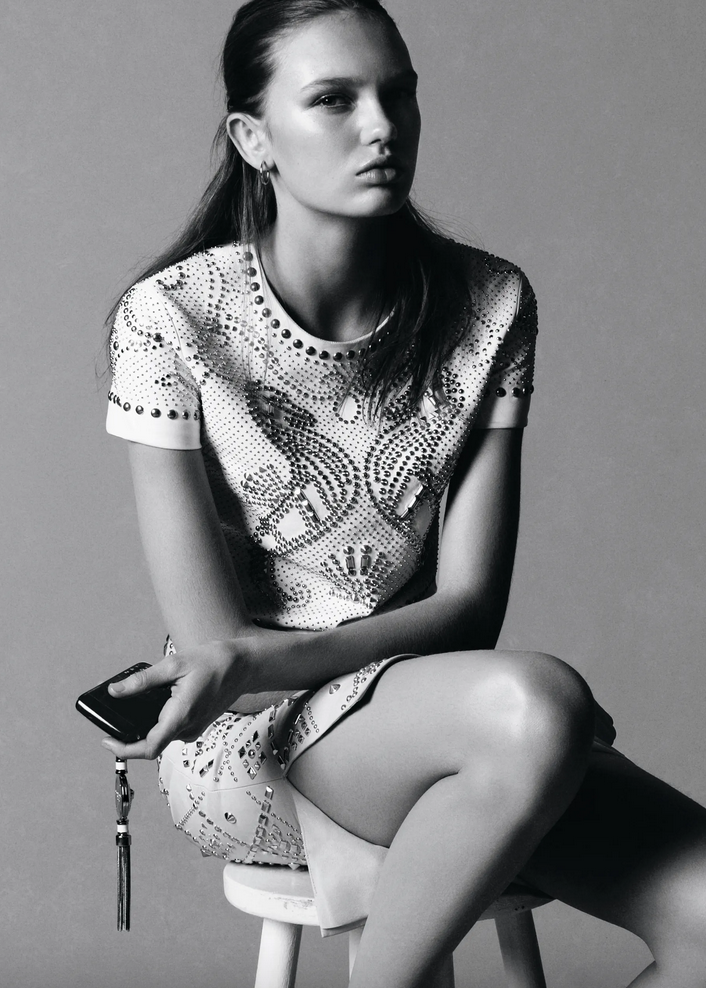
Recently though, there has been a tide shift, thanks to the rise of the new “deinfluencing” trend. The hashtag, which has now had nearly 300 million views on TikTok, began with beauty influencers telling their followers which products they shouldn’t buy. It’s arguably a response to overconsumption propagated by influencers, and growing cynicism towards sponsored content (#sponcon) on social media.
Going through the deinfluencing hashtag now, you’ll see two prominent camps of content: on one hand, the trend has evolved from discouraging consumption to recommending one product over another, instead. And while encouraging people to buy less and buy better is a step in the right direction, the critique remains that this sort of content dampens the true goal of the deinfluencing movement.
Cue the second camp of content: individuals reflecting on the ways that social media has skewed our view of what normal consumption habits look like – a refreshing reminder on a platform where copious consumption often reigns supreme (take, for instance, clothing hauls from fast fashion brands like Shein; #SheinHaul has had an astonishing 8.1 billion views on the platform to date).
As a 26-year-old – on the cusp between being a millennial and Gen Z – my relationship with the internet began at a time that predates today’s prolific creator economy. I came of age online in many ways, watching the evolution of social media platforms from being a space where you share your life with your IRL friends, to becoming a hugely commodified platform that’s laced with ad space.
The overconsumption of fashion on the internet – which has normalised buying clothes just for an Instagram post – prompted my own journey as a sustainable fashion blogger. I wanted to subvert the idea of the fashion influencer by focusing on wider issues covering social and environmental justice in fashion. Since then, an entire wave of sustainability content creators has emerged, challenging the traditional idea of the influencer, who has often fed an aspirational image rooted in unsustainability. From this perspective, the practice of deinfluencing is far from new. However, the popularity of the current hashtag means it has now transcended sustainability circles, permeating internet discourse at large.
For the last decade, Jordan Santos has worked both behind the scenes in influencer marketing and as an influencer herself. She believes the rise of deinfluencing is tied to the growing awareness of – and cynicism around – how the business of influencing works.
“Ten years ago, when influencer marketing first began, it was a small number of influencers doing ads, sharing products, and encouraging spending,” she says. “Today, we see that pretty much anyone who has Instagram or TikTok can be an influencer, as it relates to pushing and selling product. Customers are feeling influencer fatigue and they’re becoming more savvy and aware that many of the items they see on an influencer’s page are gifted or sponsored. For the influencers who post paid partnership after paid partnership, their followers are beginning to understand that there’s no way they can genuinely love all the brands and products they push.”
Santos believes while influencer ads may now be less effective, the rise of deinfluencing doesn’t mark the end of influencer marketing, but rather a potential reimagination of it – one where brands, media platforms, influencers, and consumers alike all question their approach to sharing and consuming products. She believes all parties need to “[take] a step back and ask themselves what they want to get from social media: is it just product recommendations they want? Or something more?”
Shilpa Shah, co-founder of fashion label Cuyana, also believes influencer marketing isn’t going anywhere, but says the appetite is definitely shifting. “It’s human nature to resist being sold to, and we’ve seen consumers seek out more authentic content over the last few years,” she says. “As a result of the oversaturation of influencer marketing, the biggest shift we are seeing is that consumers trust content less than they used to. [Brands] have to be more intentional about partnerships.”
rguably, this means there is increasing space for those who genuinely can change the status quo, whether it’s influencers who can help educate others in consuming less and extending the life of the things we own, to those promoting larger conversations around climate activism and the way people can take collective action.
Still, Isaias Hernandez, an environmental educator, is sceptical of how much of a difference the deinfluencing trend will actually make. “Deinfluencing is a really great conversation starter to try to talk about the belly of the beast which is over-consumerism,” he says. “However, deinfluencing, in my opinion, doesn’t really serve a larger purpose in addressing systemic issues.”
Noting the ways deinfluencing has largely evolved to become recommending alternative products, rather than no products at all, Hernandez continues: “I think it goes back to the fact that a lot of the mainstream influencers aren’t challenging the dominant models of culture that exist out there. I’d hope that people understand that deinfluencing isn’t just about raising [awareness of] how to be a better consumer.”
Rachel Nguyen, who has been a content creator since 2008, agrees that deinfluencing, like the wider sustainability movement, requires a wider shift to take place, in order to create real change. Perhaps, it even means changing the way we consume social media altogether. “The internet has entrapped our thinking, so a big part of deinfluencing is actually [breaking free from] the influence of [others],” she says.
While deinfluencing might be seen as another form of influencing, under a different guise – be it encouraging people to buy another product, or consume less overall – it’s clear that the conversation triggered by the movement has marked a key shift in the cultural zeitgeist. Let’s hope it isn’t just another social media trend.
Read more on vogue.co.uk
